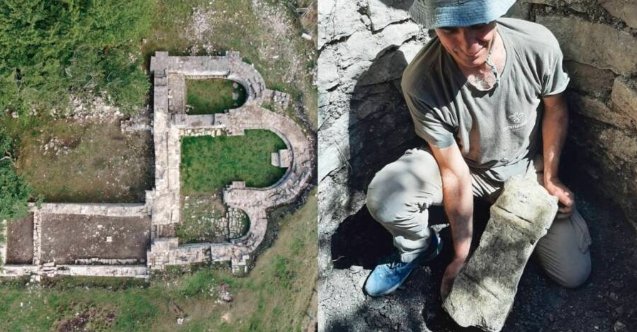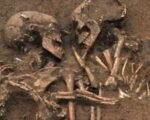In a remarkable archaeological discovery, researchers from the Aranzadi Science Society recently unearthed a 1,900-year-old votive altar dedicated to a mysterious Basque deity known as Larrahe. This ancient artifact was found at the bottom of a medieval well within the ruins of the Doneztebe monastery atop Mount Arriaundi in Larunbe, Spain. Let’s delve into the details:
The Altar and Its Significance
- Date and Location: The small votive altar dates back to the first century C.E. and was discovered during an excavation in 2022 at the medieval Doneztebe monastery.
- Dedication: The altar features a Latin inscription dedicated by a woman named Valeria Vitella to the deity Larrahe.
- Unique Find: This altar is one of only four ever found within the Basque regions dedicated to Larrahe. It is also the only one recovered during an archaeological excavation.

The Inscription and Cultural Insights
The Latin inscription on the altar reads: “Valeria Vitella fulfills her vow to Larrahe freely and deservedly.” In ancient Rome, votive altars like this one were typically stood upright, and worshippers would burn incense or pour wine over the stone as an offering. What makes this discovery particularly intriguing is that it represents a rare blend of both Roman and Basque beliefs, providing a glimpse into how the Basques’ distinct culture endured even during the Roman era.
The Larunbe altar expands the known territorial range of the Basque deity Larrahe. Previously, the deity’s name had only been attested on three other altars located in the Arga basin and its tributary, the Salado River. The Larunbe altar is unique for being the northernmost and highest-altitude dedication to Larrahe, indicating a broader area of worship than previously known.
This discovery sheds light on the early Basque people and their cultural beliefs, and it underscores the enduring significance of Larrahe in the region.













